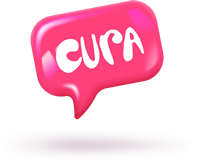Tech skills, bootcamps, online courses and YouTube channels help us get ahead and build our confidence on the technical side. But, do you know what else determines your success at work? People skills, or soft skills. This helps us get along well with others. When you get along well, you get ahead. A study by LinkedIn found that 57% of leaders say soft skills are more important than hard skills. Whoa.
Why This Matters
Soft skills make you better at your job. Being a professional is about communicating clearly, managing emotions, and anything that falls under “attitude and effort.” Soft skills help you adapt and solve problems creatively.
For example, let’s say you’re working on a team project that requires collaboration. Without solid communication skills, you may struggle to share your ideas, leading to misunderstandings and feeling distant from the team. On the other hand, if you can be intentional about communication skills, you can easily share your ideas and work collaboratively with others, leading to better outcomes and closer relationships. And who doesn’t want to feel more connected to work buddies?
Top 10 Soft Skills at Work
Here are the top 10 soft skills that can help you:
- Communication Skills – say what?
- Collaboration – What do you think?
- Adaptability – Ok, let’s pivot.
- Problem-Solving – Bring me the solution!
- Time Management – Shit, sorry. vs. B/c of delayed dependencies, we can expect a 2-day delay on my deliverable
- Leadership – Follow me!
- Emotional Intelligence – The ability to understand and manage your own emotions, as well as the emotions of others. Namaste.
- Creativity – Think differently.
- Networking – Be interested. Not interesting. Build relationships, not just a database.
- Professionalism – Basic rules of engagement that no one speaks of or defines. But like the Supreme Court says on pornography, “I know it when I see it”
So what?
We are facing a soft-skills gap—especially in communication and networking skills, which is supported by recent studies from Salesforce. Cura wants to help unpack and demystify these tough topics. This month we will kick off a series unpacking all of these topics. Do you have a question you want us to consider? Write to me at jen@cura.us



Recent Comments